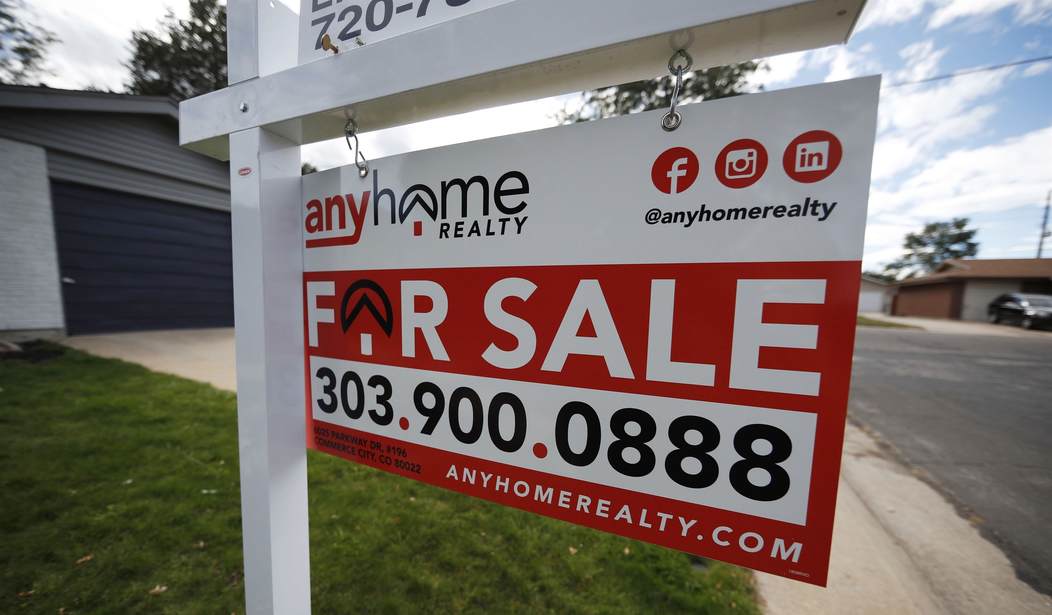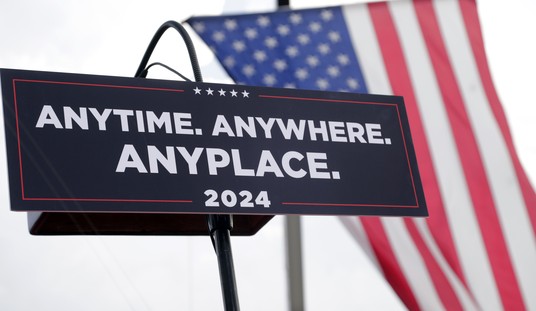While the great American dream can seem like a thing of the past for many young people, folks of a certain age remember it well and some have even been blessed to live it. You grow up, you get a job, you get married, and you buy a home of your own. The rest of those things remain at least possible these days, but buying a home is quickly becoming a pipe dream for all but the most fortunate and affluent. Under “Bidenomics,” prices are multiplying in a variety of ways. And according to the Wall Street Journal this week, there has “never been a worse time” to buy instead of rent. I am more grateful every day that my wife and I purchased our home during a nearly historic low in interest rates and housing prices and were later able to pay off our mortgage early.
Getting on the property ladder has rarely been tougher for first-time buyers. But a tight housing market isn’t turning out to be a bonanza for landlords either.
The cost of buying a home versus renting one is at its most extreme since at least 1996. The average monthly new mortgage payment is 52% higher than the average apartment rent, according to CBRE analysis. The last time the measure looked out of whack was before the 2008 housing crash. Even then, the premium peaked at 33% in the second quarter of 2006.
In theory, buying and renting costs should be roughly matched, according to Matt Vance, head of multifamily research at CBRE. Although owners benefit when house prices go up, they also put more cash into their homes than tenants for things such as repairs and refurbishments.
The average mortgage payment being that much higher than the average monthly rental payment is alarming to economists and is almost certainly scaring off potential first-time homebuyers. The last time the difference was this great it presaged a market crash that took years to recover from.
Compare the current situation to 2008. Interest rates dropped to nearly zero and a surplus of housing meant that the monthly cost of home ownership was 12% cheaper than renting on average. Today the situation has been flipped on its head and put on steroids. Rates for a 30-year mortgage are up to roughly 8%. Assuming you are lucky enough to be able to make a 10% down payment on a $400K home, your monthly costs will be more than $3,000. Shockingly, that represents a 60% increase from only three years ago when Donald Trump was finishing his first term in office.
Making matters worse is the fact that housing prices don’t seem to be obeying the normal rules of supply and demand. A few different factors are driving this. First of all, the people who locked in a low interest rate initially have very little incentive for selling and taking on a more costly mortgage, so fewer homes are coming on the market. Further, the competition for the homes that do come up for sale is being driven by the number of commercial investors who are buying homes with the intention of renting them out. Those investors are often willing to pay a bit above the current market value or asking price, leaving younger shoppers out in the cold or paying even more.
Home ownership isn’t for everyone, particularly if you work in a field that requires a lot of mobility and frequent changes to different job locations. But this market is leaving many aspiring young homeowners on the sidelines because some of the prices are simply ridiculous. And those costs would be piled on top of everything else that costs more because of inflation. A significant majority of people in the United States have little to no emergency savings in the bank and don’t have enough cash on hand to cover their bills for three months if they suddenly lost their income. How is anyone expected to save up 10% of the cost of a new home with real estate prices at these levels?
Losing private home ownership as the norm in our society would be a massive and depressing change in this country. Home ownership has never been easy for those who weren’t born into wealth, but it has always been an aspirational goal. It probably shouldn’t be too easy, or the scales could be tipped in the other direction. But it shouldn’t be impossible or even as daunting as it looks for most working class people at the moment.







